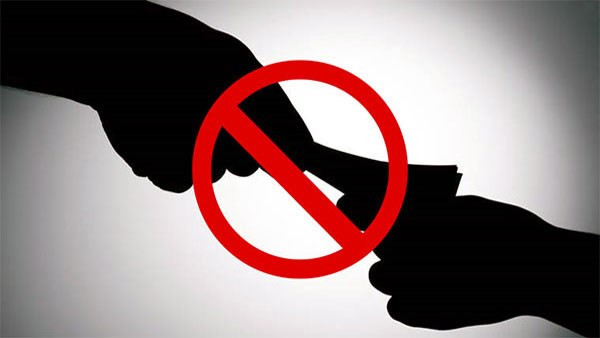Corruption and negativity still occur seriously and complicatedly in many areas, especially in personnel organization, financial management, budget, public assets, management of state capital invested in enterprises...

The Government has just issued Resolution 168/NQ-CP dated October 11, 2023 on the National Strategy for preventing and combating corruption and negativity to 2030.
The resolution stated that over the past years, under the leadership of the Party, the entire people and army have united and strived to achieve many important achievements in socio-economic development. National defense and security have been maintained and strengthened.
Social order and security are ensured. The Party and State have issued many guidelines, policies and laws on preventing and combating corruption and negativity such as Resolution of the 10th Central Committee on strengthening the Party's leadership in preventing and combating corruption and waste, Conclusion No. 21-KL/TW dated October 25, 2021 of the Central Executive Committee on promoting Party building and rectification and the political system; Resolutely prevent, repel, and strictly handle cadres and party members who have degraded in political ideology, morality, and lifestyle, and manifested "self-evolution" and "self-transformation," Conclusion No. 10-KL/TW dated December 26, 2016 of the Politburo on continuing to implement Resolution No. 3 of the 10th Central Committee, Conclusion No. 12-KL/TW dated April 6, 2022 of the Politburo on continuing to strengthen the Party's leadership in the work of preventing and combating corruption and negativity, the Law on Prevention and Combating Corruption, and the National Strategy on Prevention and Combating Corruption to 2020.
The fight against corruption and negativity has achieved many important results, creating strong changes, making breakthroughs, closely linking "building" and "fighting", effectively, increasingly going into depth, contributing to curbing and preventing corruption and negativity, receiving the consensus, response, high appreciation from cadres, party members and people, and recognition from the international community.
In addition to the achievements, the work of preventing and combating corruption and negativity still has many shortcomings and limitations. Many ministries, sectors and localities have not had clear changes in preventing, detecting and handling corruption and negativity.
Corruption and negativity still occur seriously and complicatedly in many areas, especially in personnel organization; financial management, budget, public assets, management of state capital invested in enterprises, investment, construction, bidding, auction; land, resources, minerals; credit, banking; tax, customs and law enforcement areas directly related to people and enterprises.
Corruption and negativity are still one of the threats to the survival of our Party and regime. The main reasons are that the state management mechanism in some areas is still limited and inadequate; law enforcement is not strict; the results of detecting and handling corruption and negativity are not deterrent enough; the organizational apparatus is still overlapping, not streamlined, and ineffective; a significant number of cadres, civil servants, and public employees have degraded in political ideology, ethics, and lifestyle; and the participation of society in preventing and combating corruption and negativity is still limited.
Entering a new stage of development, in the context of a market economy and increasingly deep international integration, corruption will become more complex and sophisticated. The fight against corruption and negativity is facing new difficulties and challenges. Inheriting the achievements and continuing to improve the effectiveness of the fight against corruption and negativity, the Government issued the National Strategy for the Fight Against Corruption and Negativity until 2030.
The strategy sets out five groups of tasks and solutions, including: perfecting policies and laws in the fields of socio-economic management and preventing and combating corruption and negativity; perfecting the state apparatus, perfecting the civil service regime, building a team of honest cadres, civil servants and public employees; improving the effectiveness of law enforcement; strengthening inspection, supervision, auditing, investigation, prosecution, trial and execution of judgments; raising awareness, promoting the role and responsibility of society in preventing and combating corruption and negativity; actively participating in and improving the effectiveness of international cooperation in preventing and combating corruption, fully implementing the rights and obligations of member states of the United Nations Convention against Corruption.
Review and streamline the state administrative apparatus at all levels; promote decentralization and delegation of power; specify, clearly and scientifically define the functions, tasks and powers of each management level to ensure transparency and high responsibility; have effective inspection, examination and supervision mechanisms...
According to VNA